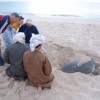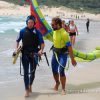Facts and routines
Shifts starting times vary from place to place, but shifts commonly start at 0600 to 1800 (and 1800 to 0600) or 0000 to 1200 (and 1200 to 0000) so basically half the igs workers are asleep at any one point. The Rig employees (such as ENSCO, Transocean, KCA, Archer etc), who maintain or make up the Drill crew, typically work three weeks (21 consecutive 12hr days) and then have three weeks off. Service personal who come aboard to perform a specific task, such as the Cementers, Directional Driller, Wireline Engineers and ourselves, the Loggers, stay from a few days to three weeks depending on operations and our roster. As soon as the service personnel are finished their jobs (i.e. are no longer required) they’re ‘down-manned’ and sent back to the ‘beach’. It can be a very fluid (adhoc) work schedule.
Weather
I’m often asked how the weather is while I’m at work offshore in the North Sea. I usually use a combination of two words: Grey and Windy. This is the ever present weather, just too varying degrees. I’m sure the Rigs Deck and Drill crew would add ‘cold’ into the mix too, for me though I spend 95% of my day inside in the office in front of computer screens. The wind seem to rise above 50knots at least once a week during the winter months in the northern half of the North Sea, often high enough to prevent the use of the Rigs cranes and/or prevent helicopters from landing. There was a storm in December where the winds were close to 65knots, almost hurricane force and the sea surface was churning – ‘violent storm eleven’ apparently! It’s pleasant enough during the summer month(s), when the temperatures are higher and the days longer but the grey and wind is never far away.
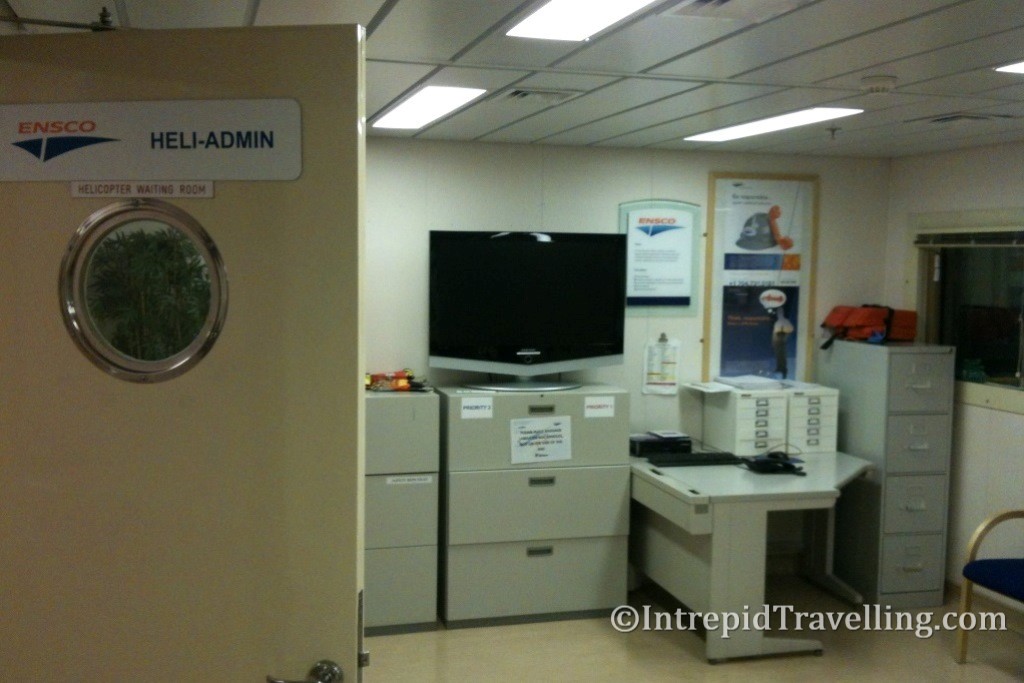
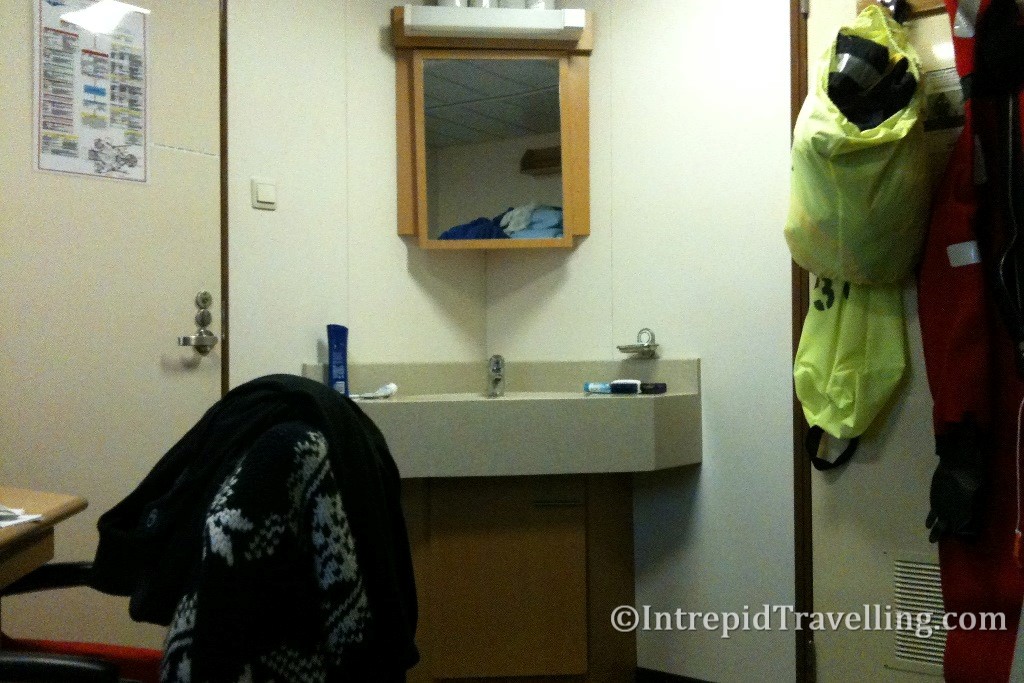
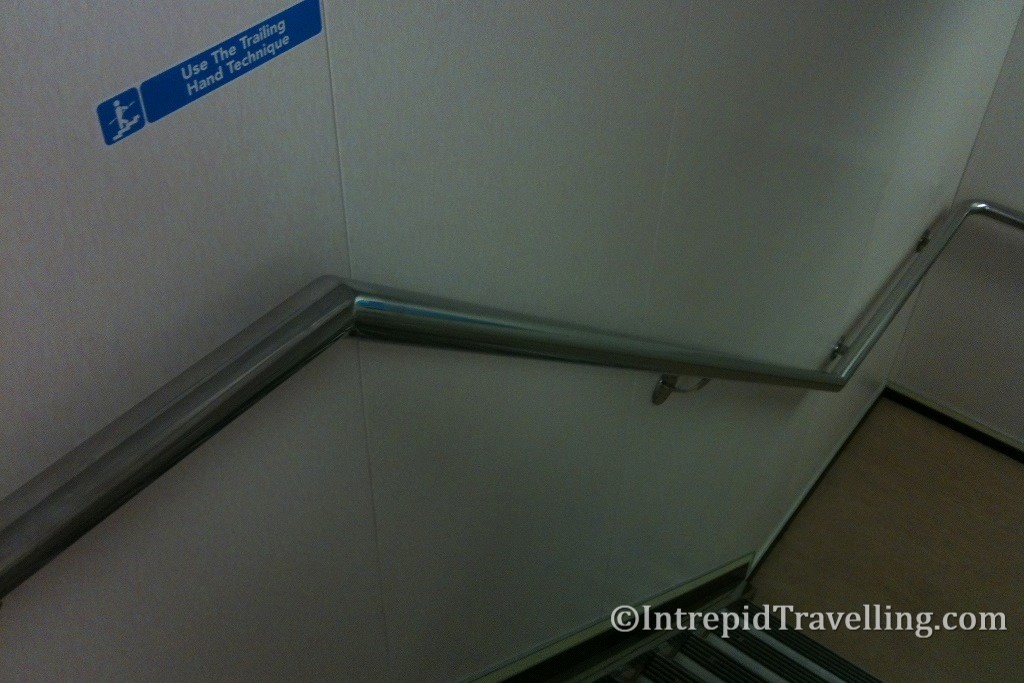
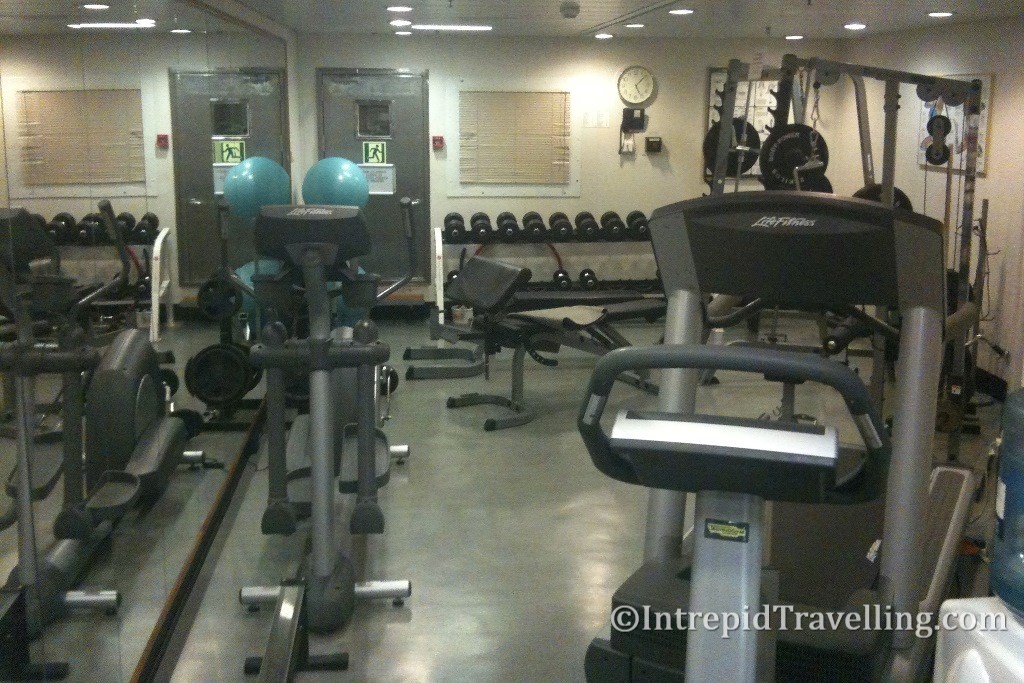
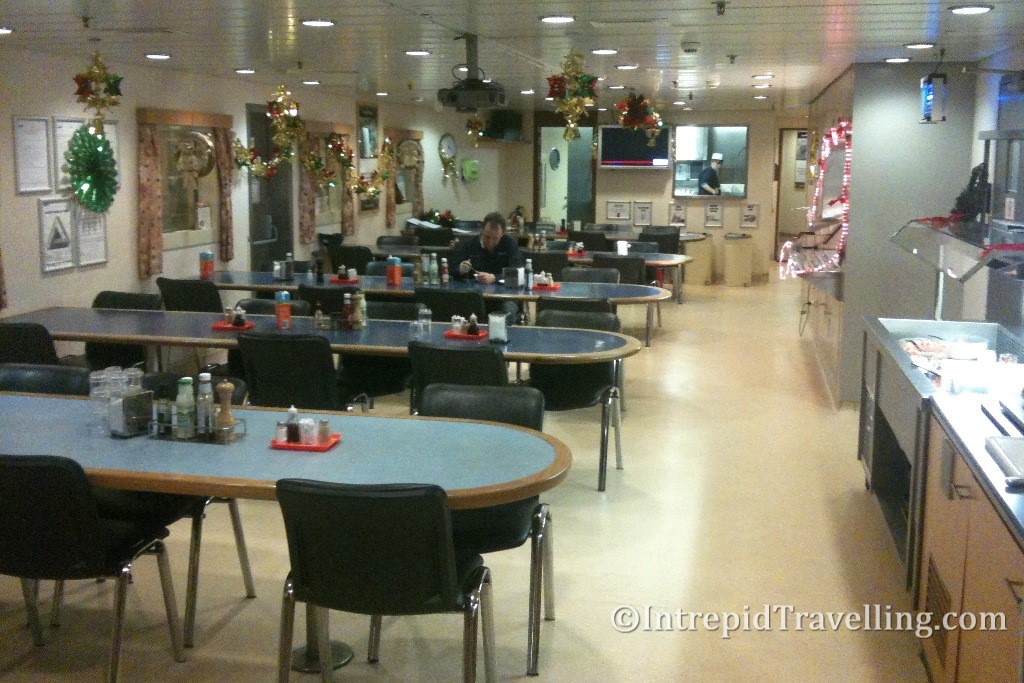
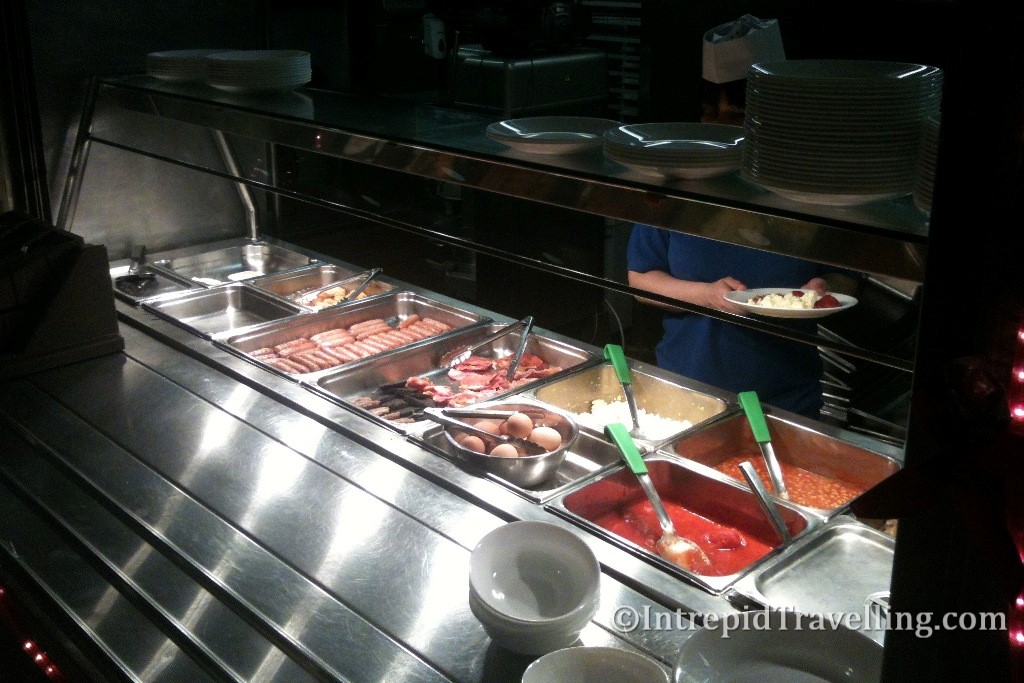
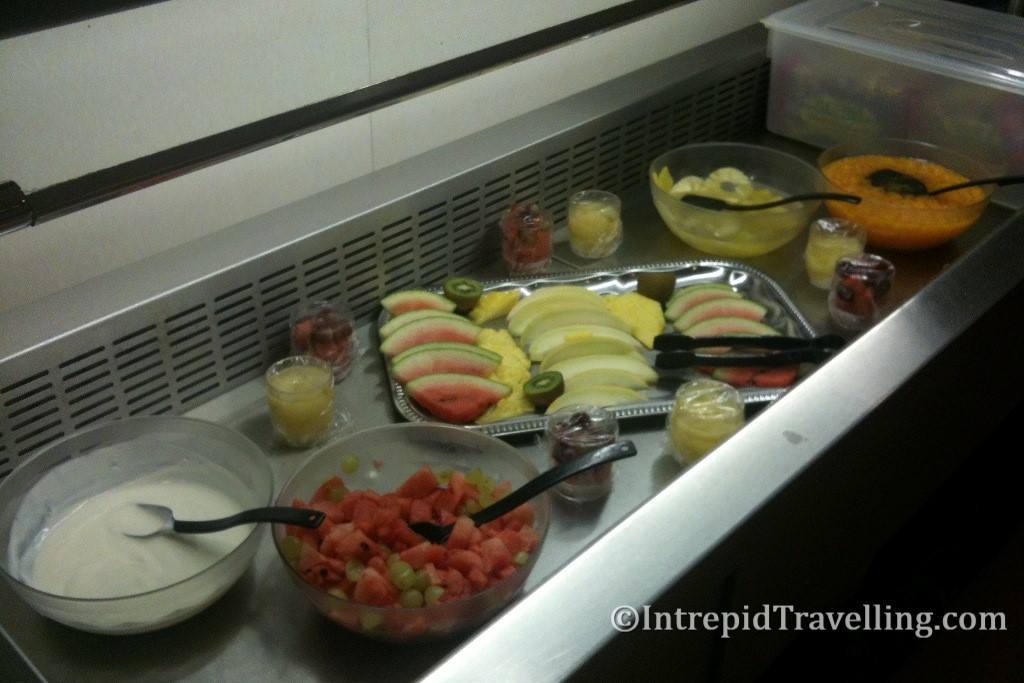
Socialwise
There isn’t a lot happening really, most people go to their rooms after dinner. The best socialising is with your colleagues at handover time for 30-40 minutes, but like anything it is what you make of it, although that it harder out here. The rest of the time it can be somewhat awkward living and working close to people you never really get to know as you may only ever pass them in the hallway or eat with them in the mess hall. Commonly though it only takes a joint task outside to break the ice. Had alcohol not been strictly forbidden offshore, then it might not even take that! This phenomenon is not too different from any other big office, or class, where you see someone daily, but may never actually get to know them, until the Christmas party…
Personalities
Just normal people really, well maybe a little ‘harder’ than normal. Mainly Scottish and English blokes (some Polish and Maltese too), probably about 95% male; former servicemen seems to be a common story. A lot of them have tattoos, often down the length of their arms, but they’re friendly once you get to know them.
Topics of conversation
For me conversation is limited as I don’t see any of these guys when back onshore so we only have work in common, and for the most part I'm shut away in the Logging Unit without too many natural opportunities to get to know the crew. Conversations mostly revolve around how long they’ve been onboard, how much they can’t wait to get home, is the Helicopter schedule likely to be on time and what they’d like to do instead of their offshore job. Certainly people doing what we do, view it as experience and a stepping stone onto bigger and better things offshore or even within the industry onshore. Although in truth Halliburton offers a lot of opportunities as we offer many different services which you can move into if an opportunity arises, however a lot of them are still offshore based and at the moment with the industry in a serious recession these opportunities are a distant memory.
Offshore workers are primarily UK based males, so toilet humor, motor racing and Football are unsurprisingly a major topic of conversation, particularly during the Premiership Season. It also seems to help if you’re a smoker as there are only two rooms on the Rig where you’re permitted to Smoke and this is where you pick up a lot of the Rig gossip and find out what’s happening as well as getting to know a few of the others you would never otherwise end up speaking with. Maybe I should start…?
Safety First, second and Last!
Safely (hazard mitigation) and environmental protection rules every offshore workers life. It’s a blessing and at times a hindrance – “no job is too important that it shouldn’t be done safely” – as work definitely progresses at a slower pace that they do onshore because of the adherence to safety processes. It starts every single day at 40 minutes before shift with a pre shift safety meeting, where we review accidents in the past 24hrs from around the ENSCO and Conoco operations around the world. Even the most insignificant of incidents e.g. people getting paper cuts or stubbing their toe.
Every Sunday we have a specific safety meeting on a related topic which is often followed by (or at some point during the weekend) an emergency drill where we muster at our lifeboats with life vests and survival suits in hand. Everyone crosses their fingers that it happens during their work shift so to not to fall on their free time after shift.
When you go up or down the stairs (anywhere on the drilling rig) you need to hold the rail in a specific way at all times, it seemed daft the first few times, but it’s all in an effort to reduce the risk of trips, slips and falls. Before you step out of the accommodation block you need to be wearing full PPE (coveralls, helmet, glasses, hearing protection and gloves) and constantly be looking out for any crane loads overhead or temporary barriers.
During the week you are encouraged to fill out several cards detailing ‘safety related’ conversations you had/have; these are published and distributed in an effort to increase awareness. There are procedures and paper work to fill out for every new work task, so that all the relevant hazards are identified and mitigated before you begin – this is mainly for the Rig crew though. I’ve probably forgotten some, but you catch my drift. The result though is a culture of safety that is endemic throughout the North Sea like nowhere else, the lack of which is a significant contributing factor to accidents and blowouts that lead to deaths, damage and oil spills around the world. Life offshore in the North Sea must almost be safer than working in an office with deaths a rear occurrence these days; two in the past five years in the UK North Sea where in 2010 about 29,000 people worked. This doesn’t include the 16 that died in a 2009 helicopter crash though…
Recommended Reads

